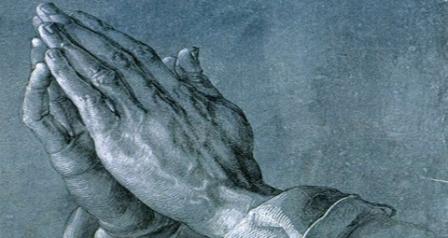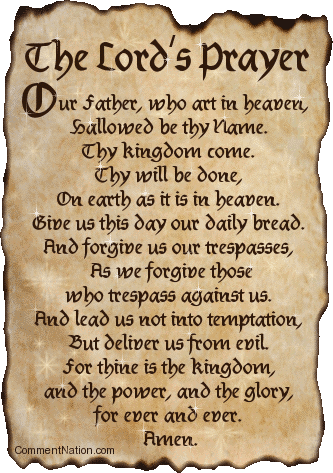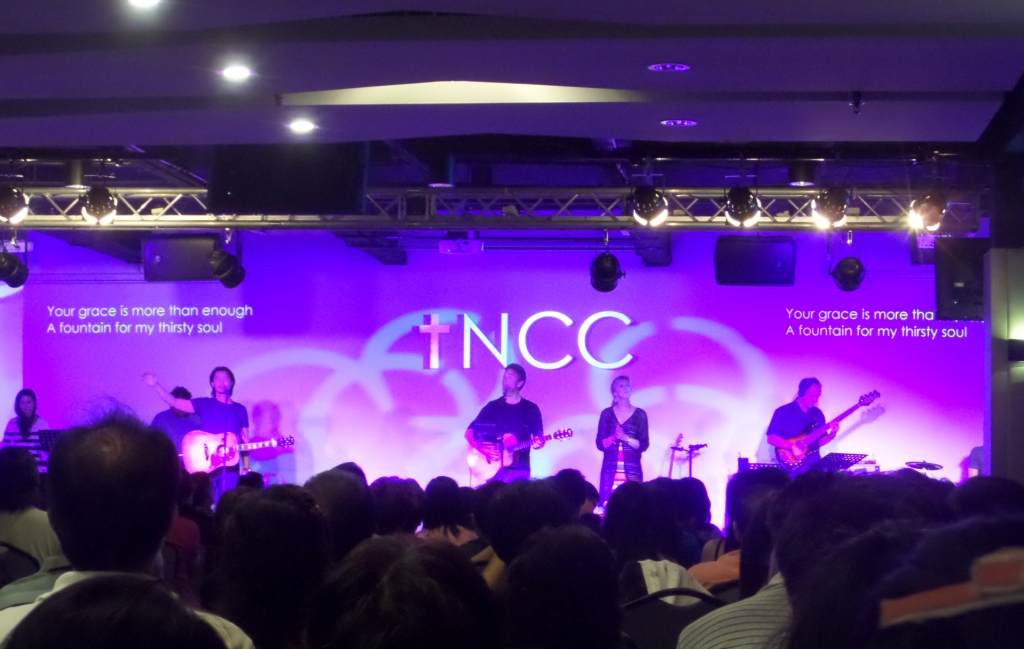
Christ did not teach his disciples how to preach but how to pray, wrote Andrew Murray. Murray also said that the prayer of a child could conquer anything. John Wesley said that GOD does nothing except in answer to fervent (stretched) prayer. John Calvin, Charles Spurgeon and R A Torrey agreed that prayer was the most important work of a Christian.
Christ said that man always ought to pray (Luke 18:1).Christ taught prayer in 5 simple phrases, the Lord’s Prayer (Matt 6:9-13) as it has come to be called. Prayer is to be made always (Eph 6:18), continually (1Thess 5:17), everywhere (1Tim 2:8) for everything (Phil 4:6).When we pray we have two intercessors: Christ in Heaven who is presenting our prayers to the Father; and the Holy Spirit who helps us pray. Christ called the temple of Jerusalem a house of prayer (Matt 21:13). St Paul reminded us that we are GOD’s temple (1Cor 3:16) and that makes us a house of prayer.
Oswald Chambers and Bishop J C Ryle said that prayer was being mentally united with Christ. We have the mind of Christ (1Cor 2:16). What we ask and what GOD wants to give us are therefore settled through prayer. A meeting of our minds with GOD comes about. Prayer is not a touch and go effort by us. It is a sustained relationship with the LORD in our spirit. It is knowing the mind of GOD by knowing Him. Spurgeon said that the depth of our prayers were more important when compared to their length.
Neither is prayer just us presenting a long wish-list of what we want. Christ is not a “blessing machine” according to Oswald Chambers: we don’t treat God like a coke machine where we slip a coin in and out comes the drink in a can. Whilst we want GOD to listen to us, we must also be prepared to listen to Him. And silence before GOD is the start of prayer.
In prayer, our struggle is not with GOD; it is with us. Alan Redpath put it this way: before we can say, “Thy will be done” we must say, “My will must go.” Out of some 667 prayers in the Bible, Dr Herbert Lockyer tracked 454 that were answered. Elijah’s prayer under the juniper tree, for him to die because he was exhausted, was not granted (1Ki 19:4). David’s prayer to build the temple was not granted, but answered when he was told by GOD that he had shed much blood (1 Chron 22:7&8). St Paul prayed three times to have the thorn in his flesh removed: this was not given, but answered with, “My grace is sufficient for you” (2 Cor 12:7 ).The saddest “prayer” in the Bible is the one in Luke 23:30 when Christ foretold that people would pray to mountains and rocks to fall on them during the destruction of Jerusalem.
The first church grew out of a prayer meeting. It cost 40 days in the power of the Holy Spirit to launch the first church. The early church survived on prayer extensively. In Acts 12:5, the word “unceasing” was used for the Greek word “ektenos” which signified a long duration of non-stop, whole-hearted, praying that stretched out the mind, soul and spirit of those who prayed. St Paul turned a prison cell into a prayer chamber. Christ withdrew from crowds in order to pray on His own.
Prayer is not difficult because GOD is not difficult; only we are difficult because we let satan have his way when he makes us feel weary. Christ warned us not to make a public display when we pray individually. There are no specific times of day nor numbers of times for prayer except “always”, “everywhere”, “continually”. Peter prayed on a rooftop on one occasion (Acts 10:9). No manner of praying whether kneeling or standing or sitting is prescribed, and different saints prayed differently.
The LORD’s Prayer shows us how to approach prayer. The word for “Father” at the start of the Prayer is the equivalent of “Daddy” .This shows a personal relationship. The prayer starts off with praise to GOD and ends in praise. The first part of the LORD’s Prayer focuses on GOD. It calls for the ushering of GOD’s Kingdom and specifically pleads that the will of GOD in heaven meeting its purpose on earth.
The second part of the Lord’s Prayer is for what we want GOD to do for us. The word “I” is avoided in the prayer. This shows that the self must be put aside in prayer. Our first petition is for basic material provision, just for the day. Our confession of sin together with us forgiving those who have offended us comes next. Forgiveness of sin is mutual. It is followed by a request to ask that we are not subjected to temptation and ask that we be delivered from evil.
A Christian who knows his Bible, attends services and meetings at church, does charity and goes tracting but is lightweight in his prayer life will find himself burnt out. The material instincts in his spirit will overtake him as he has not been sustained by the Holy Spirit through prayer. He will be performing on his own steam, relying on energy from himself and not the Holy Spirit.
Note: Tony Dibble worships at Endeavour Christian Gathering in Mullaloo Perth, Australia for about 7 years. Prior to this, he was at Church of Our Holy Saviour, Labuan, East Malaysia. When he is in Kuala Lumpur, he now worships at Faith Oasis Fellowship Subang Jaya, Selangor.
Dear Viewers in Christ, if you find this article edifying to you, please share with your friends or loved ones by using the social media plugs (Share, Email to this article). The Lord will surely bless you as you bless others. May the Lord’s peace and love be with you. Amen.
References for pictures:
http://3.bp.blogspot.com/_oFvXJMoDAP4/TKu6uIz5Y0I/AAAAAAAAAJA/OeSkq0bOl_c/s1600/a-childs-prayer.jpg
http://ventura632.files.wordpress.com/2008/12/mind1.gif?w=382&h=480
http://www.qurandistribution.com/images/submit.jpg
http://pastoreid.files.wordpress.com/2012/08/prayer.jpg
http://www.commentnation.com/comments/the_lords_prayer.gif










Leave a Reply